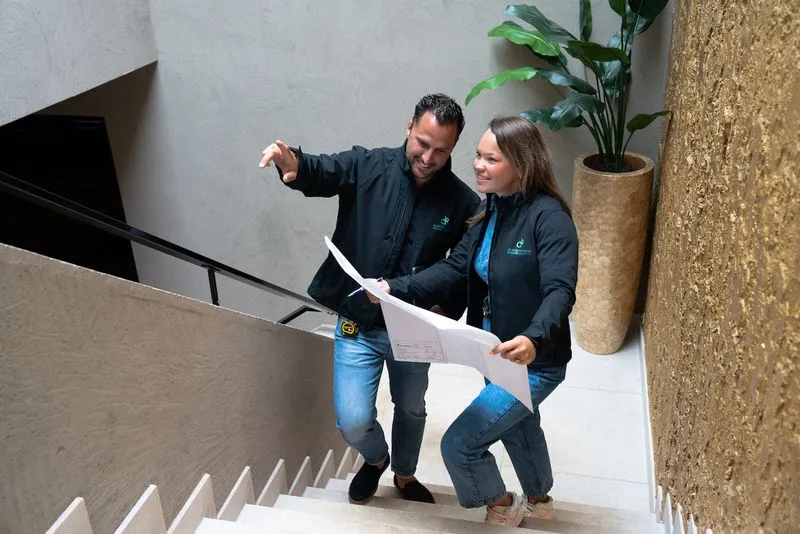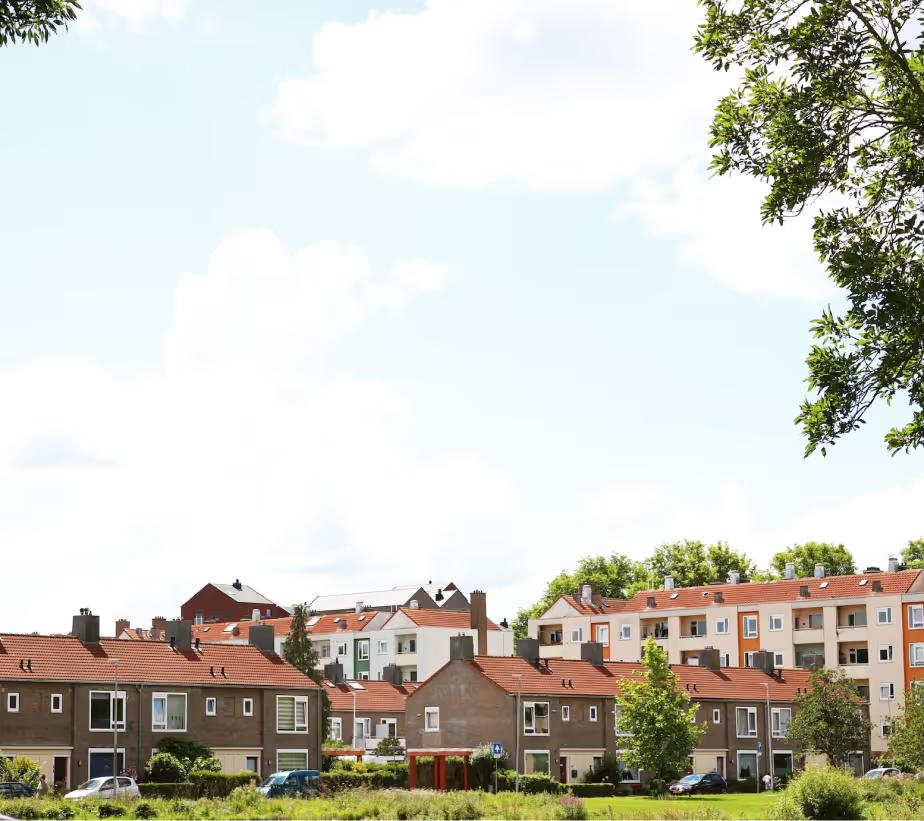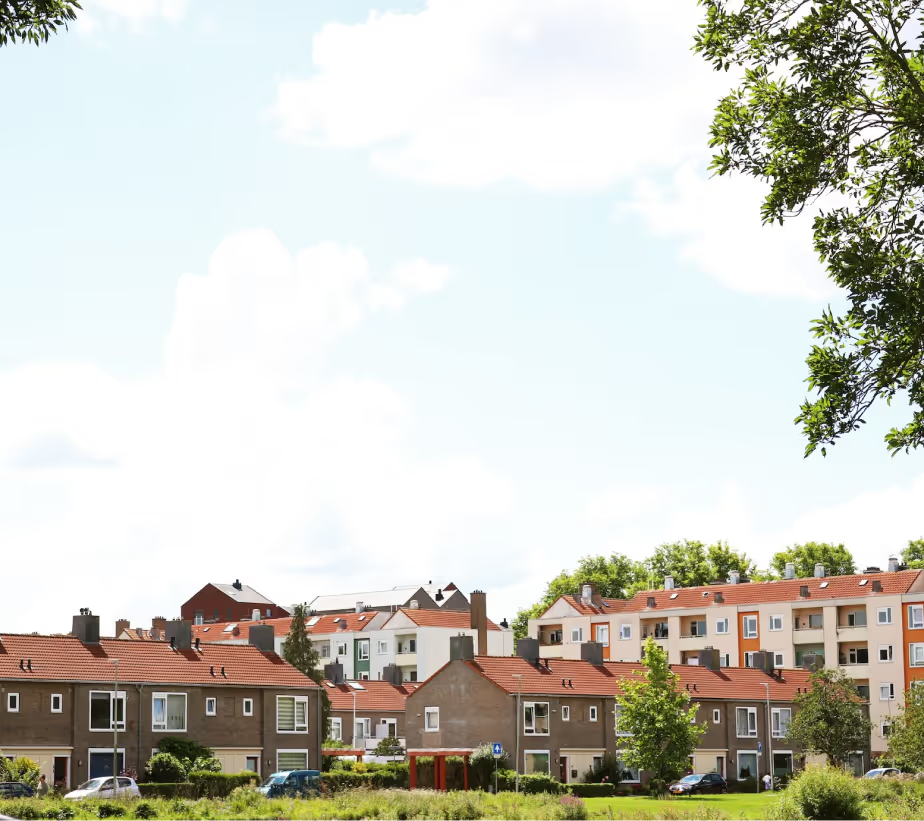With the rise of smart home technologies, making your home more sustainable is becoming easier and more efficient than ever before. A smart home offers advanced options for optimizing your energy use, resulting in lower energy costs and a reduced ecological impact. Learn how a smart home can help you achieve a more sustainable lifestyle.
One of the most important aspects of a smart home is the ability to remotely control and automate devices and systems. Using smart thermostats, for example, you can precisely control the temperature in your home and save energy by using heating or cooling only when necessary. In addition, you can remotely control lights, appliances and other electronics so that they don’t consume power unnecessarily.

Our specialists are happy to visit you to carry out a thorough investigation. We'll review your current home infrastructure, listen to your needs, and identify the best options.
After the research, we will work on developing the most suitable options for your smart home. We analyse which smart devices and systems best suit your wishes and needs.
Once the options have been determined, our professional installers will start installing the smart home parts. From smart thermostats and lighting to security systems and voice-controlled assistants, we provide professional installation and integration.
With a smart home, you can not only enjoy convenience and comfort, but also save on energy and costs. By smartly controlling lighting, heating, appliances and other systems, you can optimize your energy consumption.

In addition, a smart home offers the opportunity to gain insight into your energy consumption and patterns. Using smart energy meters and monitoring systems, you can receive real-time information about your energy use. This enables you to be more aware of your energy consumption and identify potential savings opportunities. You can even set up automated notifications to warn you of abnormally high consumption or unusual activities.
In addition to saving energy, a smart home can also contribute to more efficient use of water. With smart irrigation systems, you can optimally provide your garden and plants with water based on weather forecasts and soil moisture. This prevents water waste and helps you maintain a healthy and green outdoor space.
In short, a smart home is a valuable investment for those who want to make their home more sustainable. By using smart technologies, you can optimize your energy and water use, reduce your carbon footprint, and save money on your energy bills. Take the step towards a more sustainable future and discover the possibilities of a smart home.

De Duurzaamste Bouwer has provided my home with energy-efficient insulation, and I am impressed with the results. My home feels noticeably more comfortable no matter the season, and I find that I’m much less dependent on my heating and cooling systems. The energy savings I’m making are really remarkable.
A national subsidy is available for insulation. If you apply one measure with the ISDE grant, you will get up to 15% of the costs back and even up to 30% if you have two done. We will look at the possibilities with you
When you visit websites, they may store or retrieve data in your browser. This storage is often necessary for the basic functionality of the website. The storage may be used for marketing, analytics, and personalization of the site, such as storing your preferences. Privacy is important to us, so you have the option of disabling certain types of storage that may not be necessary for the basic functioning of the website. Blocking categories may impact your experience on the website.
Essential
Always Active
These items are required to enable basic website functionality.
Marketing
These items are used to deliver advertising that is more relevant to you and your interests. They may also be used to limit the number of times you see an advertisement and measure the effectiveness of advertising campaigns. Advertising networks usually place them with the website operator’s permission.
Personalization
These items allow the website to remember choices you make (such as your user name, language, or the region you are in) and provide enhanced, more personal features. For example, a website may provide you with local weather reports or traffic news by storing data about your current location.
Analytics
These items help the website operator understand how its website performs, how visitors interact with the site, and whether there may be technical issues. This storage type usually doesn’t collect information that identifies a visitor.